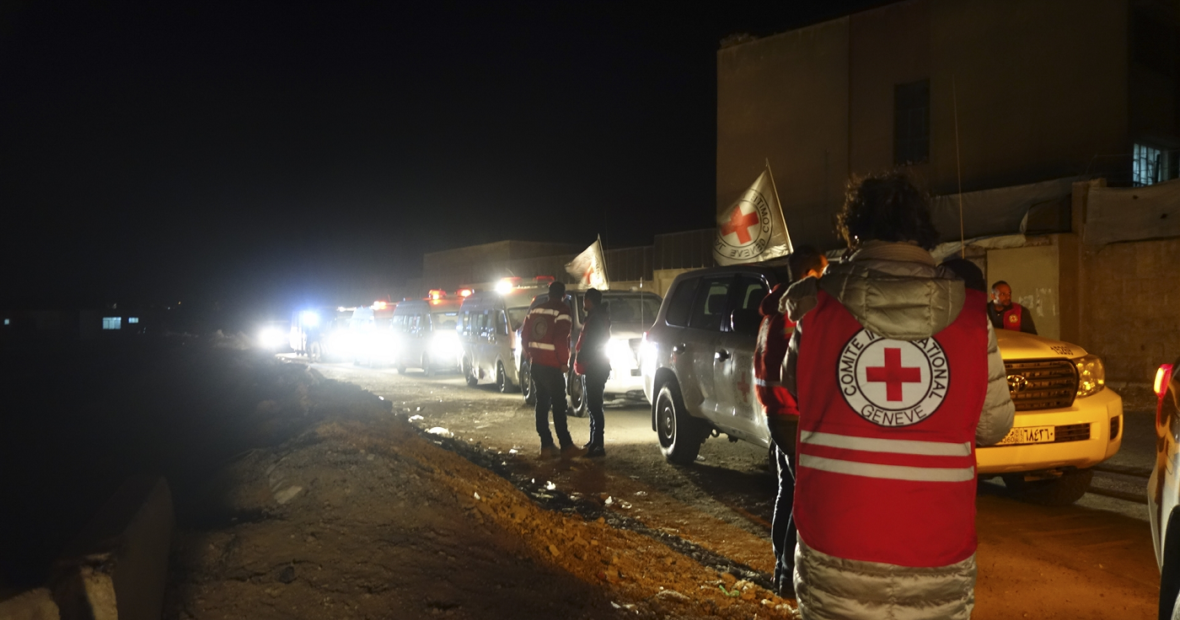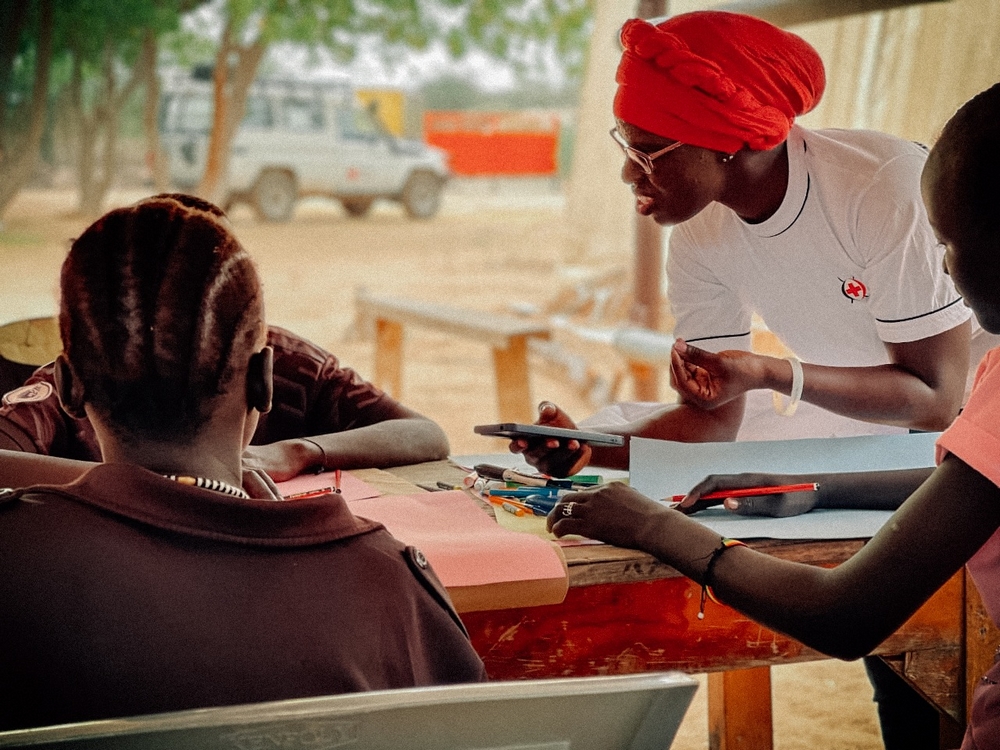The challenge
That painfully oversimplified scenario lies at the heart of differing visions for humanitarian action between the ICRC’s Ricardo Fal-Dutra Santos and me. In his Humanitarian Law and Policy post, Santos—writing in a personal capacity—challenges the rescoping of humanitarian action as proposed in The New Humanitarian Basics. There, I advocate reversing the expansion of humanitarian action and its attendant colonization (i.e., humanitarianisation) of political, socio-economic systemic dysfunction.[1] My paper finds the dominance (if not monopoly) of humanitarian actors and methodologies in situations of protracted crisis particularly problematic, as it essentially results in a 20-year series of one-year projects ill-suited to addressing the underlying causes of humanitarian needs. They are, however, functional, well-suited to masking the predictable inadequacy of relief efforts or the sustained policies of national and international political disengagement.
Santos and I agree on much, on a humanitarian action in which paternalism is absent rather than predominant, or where the needs of people in crisis rather than institutional silos drive the shape and content of the interventions mounted in their name. Yet, Santos seems unconvinced by the idea that the ambulance team above should scale back its work to deal with heart attacks tout court, even if we both agree that the team needs to contextualize its response and take into account the bigger picture of this family’s wide range of needs.
Santos sets forth a three-pronged argument:
- that the humanitarian sector ‘has historically adapted to new challenges and expanded the scope of its action’;
- that the nature of contemporary crises and interventions ‘testify to the ability of humanitarian actors to respond to protracted crises’;
- that the ‘voices of affected populations on their own needs constitute a strong moral justification for these expansions’.
To a certain extent, his prongs offer a set of useful criticisms to the arguments in my New Humanitarian Basics. Yet, for the following reasons we as a humanitarian sector should avoid reaching his conclusion—that humanitarians need to do more (expansion), not less (focus).
Answering Santos
The expansion of humanitarian action follows a history of ‘humanitarianizing’ crises beyond its original conceptualization as a response to the immediate needs of people (largely, military personnel) caused by international conflict. The ICRC’s (and the sector’s) expansion into natural disasters, internal conflicts, internally displaced persons and those fleeing other situations of violence reflect a positive adaptability. Importantly, it is also well supported by the appropriateness of the tools to the needs: so-called ‘band-aid’ approaches to immediate, urgent needs.
These expansions thus allowed for humanitarians to use their same expertise in similar situations: saving lives and alleviating suffering via the ‘delivery of emergency relief/assistance and protection in times of crisis’ (New Humanitarian Basics, p 3). Logic does not dictate that humanitarians should further expand their purpose and/or modus operandi[2] to resolve problems of a fundamentally different nature and beyond their expertise—such as underdevelopment, inequality, failing government services or inequality. That said, we should all agree that humanitarians can neither ignore these problems in their understanding of people’s needs nor in the design of their programs, hence in New Humanitarian Basics my echoing calls for development-friendly humanitarian response.
It is certainly true that humanitarian action is not solely short-term in its application or consequences, and many benefits of humanitarian work will support future development (e.g., construction/rehabilitation of various facilities, training/upskilling of local professionals or the development of context-specific emergency preparedness) or comprise what the ICRC labels ‘development holds’.
Yet, it marks quite a leap to move from the self-restraint of such contributions to Santos’ conclusion that ‘humanitarian actors do have the right tools to respond to protracted crises’ or the seeming hubris in his conceding that ‘development actors may be just as qualified to “support long-term structures”’. More correctly, humanitarians have the right tools to respond to humanitarian needs (e.g., food, shelter, healthcare, etc.) that appear in the midst of protracted crisis, but this misses the fundamental difference between the purpose, mindset, approaches and expertise of humanitarians and those necessary to address disempowerment, systemic failure, poverty or conflict.[3] These differences inform the foundation of and respect necessary for complementarity to become the prevailing mechanism of the response to people’s needs (and well beyond the narrow binary of ‘humanitarian or development’ needs or even the ‘triple nexus’ to include governance, rule of law, peace, democracy, etc.).
It is with the third prong of his critique that I find the least sympathy. Ignoring the demands of the people ‘would only reinforce the Western bias [DuBois] criticizes’. Dead right. The supreme humanitarian principle of humanity implies a ‘right to self-determination and the ability to possess at least some degree of power over the forces affecting life itself’ (New Humanitarian Basics, p 28). However, a programmatic chasm runs between listening when people affected by crisis demand a response to more than their immediate needs and then deciding that humanitarians should be the responders to those varied, non-humanitarian needs. Should the ambulance crew maintain its dominant (market) position by taking on the work of oncologists, paediatricians and educators?
More objectionable than this point about effectiveness and complementarity is the disregard for history. The humanitarian sector has been almost perfectly consistent in steadfastly ignoring the opinions of people affected by crisis, their perception of need, their frustration with their needs being overlooked, their call for downward accountability or even the ‘ownership’ of the humanitarian operations in their communities. For lack of a more elegant way of expressing it, something smells funny (or, at least, historically exceptionalist) about humanitarians now justifying their continued expansion by appealing to the voices of the people. The timing seems uncoincidental as the power of the Western-based (formal) humanitarian sector is finally being disrupted by local aid NGOs, by local civil society and affected communities finding ways to be heard, by national authorities, or by new interventions such as the way Ground Truth Solutions brings methodological rigor to the perceptions of affected people.
Conclusion
Let the sector end its lucrative love affair with solutions in the form of new guidelines, agendas and coordination platforms. The propositions I set out in the New Humanitarian Basics were designed less as a final product than an urgent call to examine the underlying dysfunctions of humanitarian aid. Kudos to Santos for answering that call. The paragraphs above answer Santos. Neither of these blog posts, though, begin to question how the history and power of humanitarian action may have caused or contributed to the very problems it now professes a desire to fix (read: capture).
Did the mediatic/marketing success of humanitarian action further the progressive narrowing of aid funding into streams or silos that left development actors out of protracted crises, where the structural violence of underdevelopment is masked by the immediacy of responding to humanitarian needs? In simpler terms, is the sector responsible for stranding people in the humanitarian alibi—in crises where the urgent trumps the important in perpetuity?
And how does the humanitarian sector, with its relatively short-termist perspective, remain blind to important yet unquantifiable impact such as the degree to which decades of humanitarian substitution in, say, Eastern DRC inhibit the growth of government services or, more fundamentally, the social contract? Or, as Santos writes, to what extent has the ‘evolution of humanitarianism’ also ‘led to an extension of the length of the crises to which humanitarians respond’.[4]
Chief among New Humanitarian Basics’ propositions is the idea that humanitarianism must end its spatial and programmatic domination of (protracted) crisis response, in the process eschewing the very notion of a crisis that is humanitarian in nature (i.e., because man-driven destruction is obscured by labelling it a humanitarian problem). The vision that arises calls for a radical complementarity, moving through and then well beyond a humanitarian-development nexus. Far more importantly, it envisions a responsiveness founded upon the humanity of people in crisis, and hence their right to the space in which to tackle their own problems without these being appropriated in the name of compassion.
As Akwasi Aidoo so beautifully wrote:[5]
Can we
Dance?
Dream?
Struggle?
Can we resist your
folly?
With Justice?
***
Footnotes
[1] The ODI/HPG Working Paper was produced as part of a project exploring the constructive deconstruction of humanitarian action. See here for a series of podcasts and links to further analysis.
[2] For an insightful ICRC view on this topic, see Filipa Schmitz Guinote’s blog post, A humanitarian-development nexus that works.
[3] Santos correctly points out, as is also argued in New Humanitarian Basics, that many development agencies no longer have the skills to manage operations in conflict settings. However, this de-skilling calls for those skills to be (re)built, because those are the agencies/people that can properly address the causes of the crisis; and the humanitarian sector should not self-servingly conclude that its relatively better capacity for security management justifies its continued occupation of the development turf.
[4] In fairness, I am not certain that Santos means to say what he in fact writes. It is, however, an essential question that remains unasked by those promoting the unqualified desirability humanitarian expansion.
[5] Hat tip to Jennifer Lentfer for sending this poem.
Related posts
‘Basics’ won’t do: A response to Marc DuBois’ ‘new humanitarian basics’, Ricardo Fal-Dutra Santos, 13 November, 2018






Thanks Marc for an insightful piece. The place of palliative care in humanitarian response is starting to garner quite a bit of attention. It’s now in the Sphere Guidelines and there are new WHO Guidelines. This means palliative care for the spectrum of patients who might require it in a humanitarian crisis – those with pre-existing or chronic needs whose care or treatment may be interrupted, those with acute injuries and deemed expectant, anyone with a serious or life-limiting illness who would fit under the banner of “palliative care.” It might indeed mean your ambulance referring the brother with multiple sclerosis to other appropriate services carried out by humanitarian actors to help relieve his pain and suffering.
Palliative care is back to basics in the sense of remembering the ethos of humanitarian action as alleviating suffering (e.g. Dunant caring for and accompanying wounded soldiers on the battlefield in their dying moments). But perhaps not back to basics in the sense that it may require ongoing care in a protracted crisis. Palliative care may be fleeting care sometimes enacted through small acts of compassion, or it may be longer term involving more extensive specialist care. I’m wondering where you see palliative care fitting into your concept of scaling back? Or doesn’t it?
Thanks Marc.
Quite agree with your points. The OECD has worked with Ground Truth Solutions to survey some 12 000 people receiving humanitarian aid since 2016. One conclusion of the policy report for DAC donors (Lives in crises -what do people tell us about the humanitarian aid they receive?) is that if people are happy to receive aid, what they rapidly need most is sustainable livelihood opportunities. We argue that in crises, not all needs are humanitarian in nature and humanitarian aid shouldn’t be by default the best response to any need. Humanitarian needs reflect underlying development and political problems, therefore donors’ involvement in crises should always combine humanitarian funds with political dialogue and longer-term instruments such as development co-operation when possible. This is sense of the recently adopted DAC recommendation on the humanitarian-development-peace nexus.